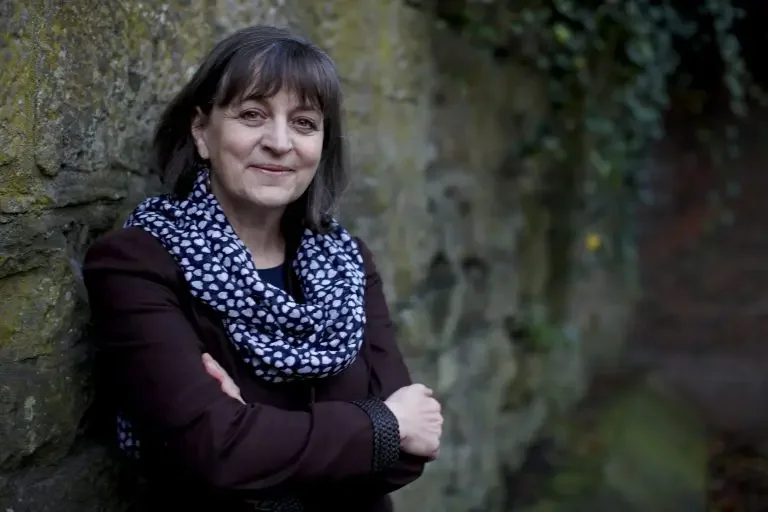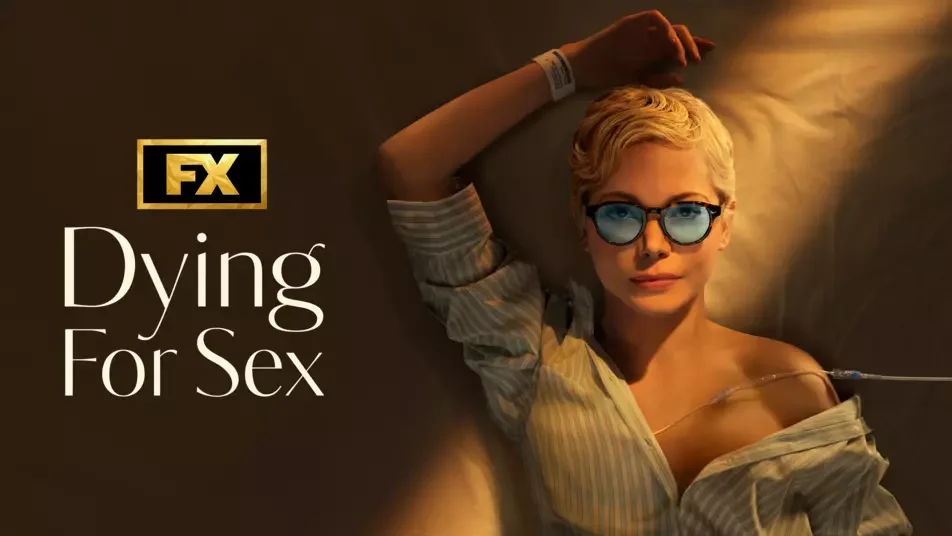Becoming a death doula
Mangala Holland is a death doula in training, having completed a foundation course with Living Well Dying Well. Having worked in the sexual wellness world for 12 years, she is no stranger to journeying with people through tender, challenging and intimate times.
In our latest blog, we asked her why she decided to become a death doula and how she began her new career.
‘Death is an area of life I want to explore’
I've spent the last 12 years working in the field of pleasure and sexuality. Around the time I turned 50, I started to wonder what I wanted to do with the second half of my life. Did I want to be teaching pleasure for the rest of my life, or was it something more? I started to feel this pull towards death, something I've always been interested in. I love demystifying things, breaking down taboos in society. That's a natural part of my job and who I am.
Why Mangala became a death doula
One of the reasons why I wanted to explore this actually is because I hadn't had much exposure to death through my life, and partly because I wanted to prepare myself for my parents’ passing. I feel like there's an opportunity here for us to grow as a society and for us to support each other more.
I've had a few friends who've died in recent years, and I have a friend at the moment who has stage four ovarian cancer. It's becoming more and more a part of my world as a fifty-something year old woman; I’m now being exposed to it more.
I'm also more aware of my own mortality as well, particularly as I get older. I didn't grow up in a family where I saw anybody die or their body laid out in the living room, so death always felt very abstract. I recognised that it was an area of life that I really wanted to explore.
How to become a death doula
I looked at a few different training programs, and Living Well Dying Well was the one that just felt right. It's also the only certified End of Life Doula training program in the UK. So I did the foundation training with them and it’s opened up this amazing world to me. I'm now part of the training team, so it's a really lovely way to be reaching more people and having these conversations about what's possible; how can we empower ourselves and our loved ones and our families to make the most of this really profound transition, and to do it as well as possible.
Death doulas come from a wide variety of backgrounds. I see particularly within the training team there are therapists, psychotherapists and mental health professionals. There are also people from palliative care and hospice careers, and people who are volunteering in this area. Many have had first-hand experience of death and dying and feel that they want to give back; it's quite a wide variety.
Death doula training
I completed the foundation course online. To begin, we put ourselves in the role of being our own first client, really considering what we would want at end of life. What are our own wishes?
A lot of the doula role can revolve around advanced planning. People tend to think of that in terms of, ‘do I want to be resuscitated?’ And ‘what's going to happen to my pets’, writing a will and lasting power of attorney and all the legal logistics. But it's also considering, where do I want to die in both an ideal scenario and in an unexpected death? Is it at home, in a hospice or a hospital? What kind of comforts would I like? Do I want my favourite blanket and my fluffy socks? Do I want the window open? Do I like certain smells and touch? Who do I want around me and who don't I want near me?
It's all very person-centred. How can we make that person the centre of their experience, so they're not necessarily seen as a patient? We’re there to advocate and speak up for their needs, whether that's with family members or medical staff. It could be knowing just how they like their tea or perhaps supporting a family who need a bit of breathing space. The training really gives you the opportunity to reflect on this on a personalised level.
It’s also important to be aware of potential cultural blind spots; how can we be culturally humble and not project our own assumptions on to people, really helping them live life in a way that is meaningful for them.
We learn about the expected signs that someone's close to end of life, so we can normalise the process for them, their family and friends, and take some of the fear out of the process by demystifying what's happening.
There is so much support available via End of Life Doula UK once participants have gone through the foundation training. They provide advice on insurance, mentorships, supervision, regional groups, and Living Well Dying Well offer further training in the form of a two-year diploma. So you're not just left on your own and I think that's really important, because at the moment it's not a regulated role.
Right now, anyone can just set themselves up as a death doula, even if they have not had any training, which I feel is a problem. I believe that’s why some medical professionals can understandably be quite wary about doulas. That's one of the reasons why I chose this training, because I want to make sure I'm doing this right. I think the training is helping to dispel negative perceptions amongst medical staff around the doula’s role.
The work of a death doula
The support offered will depend on the doula themselves. It could be online if they're quite remote and it's not physically possible to be with the person. Some doulas will focus on advanced planning and just helping people feel like they're prepared, and they've got all their affairs in order.
Other duties might be doing the washing up, helping around the house, or helping sort out their life and death paperwork. Other doulas may focus more on educating; some will run death cafes or grief support networks in their local area. It can also involve supporting families after the person dies to register the death and support with the admin afterwards.
There can be a spiritual side to the role. It very much depends on the dying person and their belief system. There are other training options available that focus more on the spiritual side. Most doulas will be open to facilitating that, but then some people just need the more practical support. It can be more about filling in the gaps between carers, medical professionals, palliative care nurses and helping to join the dots between everybody. It's a very varied role and it's really about meeting the client where they're at and working together to help them do what they want to do.
What working as a death doula means to Mangala
It's become clear to me that I'm very much more focused on the education side of things, rather than perhaps being a bedside doula. For me, it's about demystifying and normalising death, being a safe, open harbour where people can have the conversations that perhaps they can't have with people who are close to them. It’s about holding space for people and being an unconditional ear, reducing stigma and taking the fear out of it.
I absolutely love Kathryn Mannix’s approach and the way she normalises the process so people know what to expect. Doula work is about supporting people to have the best death possible and to live their lives as fully as they can up until that final moment. I think there's something really rewarding and fulfilling in that.
Death doulas can also help to slow things down. Particularly if somebody dies at home, there is often this urge to start the funeral process right away, to rush into decisions. Death doulas give people permission to take the time they need to say goodbye and to explain all the available options. Do they want to tend to the body in a way that feels meaningful for them? To say those goodbyes and to complete that part of the process? Do they want to have the body at home instead of in a funeral parlour? I think it’s really important to make sure they understand what the options are.
When the time comes, I would like the support of a death doula myself. I can see a real need to have somebody who is skilled in the process and isn't so caught up in the emotional immediacy of what's happening, someone who isn't that close to me, but somebody who's a step removed; I think would just be incredible.
The last taboo?
Having worked in the field of intimacy for many years, I see sex and death as kind of two sides of the same coin in some respects. For anybody who is interested in learning more about this, I would definitely recommend watching Dying for Sex on Disney Plus.
It's a really beautiful series based on a true story of a woman who was diagnosed with terminal cancer in her 30s. She quit her marriage and went on a quest to find sexual fulfilment while she still could. It's very tender and poignant, and the way that she explores her sexuality and ultimately, her death, to me as a professional was very realistic.
When I watched it, I felt two different elements of my world coming together. I think especially here in the UK, we struggle to have intimate, deep conversations. I see this as very similar in relation to death and dying. Especially over the last 50 years, most people are never exposed to a dead body in their home. Whereas in the past, people died at home and they were tended to by their loved ones. That was part of the process. And as things have become more medicalised, it's become very sanitised and removed from our experience. I think it could be a real benefit to society if we can have more open conversations about difficult topics.
Even people who work in the death world don't actually know too much about what is involved in doula work. But with the ways society is shifting at the moment, in particular with the pressures on the NHS and hospice funding, inevitably more people may well be dying at home. A friend of mine whose dad died last year, he didn't want to die at home, but that's what they had to navigate because there just weren't any beds in the local hospice. So as society shifts, as we break down taboos in other areas, then this becomes perhaps the last big one to address.
Through my work I've been exposed to books, podcasts and films in which people are breaking down these barriers and talking about death and dying. It feels like we're on the brink of a really big shift in society.






